From application to offer: A recruiter’s guide to landing your dream job in industrial
February 17, 2025
It’s no secret that the industrial property sector is booming. And with opportunities expanding rapidly, 2025 could be your year to make a tactical career move.
The key to snagging that dream job? Knowing how to correctly position yourself so you rise above the rest.
We joined forces with Nikita Jenkin, Associate Director of Property Development and Marketing at Scouted Recruitment, to share our top tips for landing your next big role.
A strategic approach to career growth
The industrial property sector is experiencing a powerful surge in growth. We know that.
Warehousing, logistics and supply chain infrastructure are in high demand. And with the global market expected to be worth $131.57 billion by 2028, it’s a secure and rewarding place to expand your career.
‘If you get the chance to move into industrial or pivot within it, you should definitely take the leap,’ advises recruitment specialist Nikita Jenkin.
But competition is fierce – especially for specialist senior roles and within niche areas like acquisitions, portfolio management and development management.
So, with that in mind, how can you ensure you stand out?
First, strengthen your network
In 2025, your networking skills will be what puts you ahead of your competition. And according to Nikita, LinkedIn is where it’s at.
‘LinkedIn is like an industry notice board,’ she explains. ‘It’s where companies post available jobs, invitations to events and industry news. If you’re not on it, you’re missing out!’
The social platform also puts your experience and skill set in front of the right people, which is why hiring managers, recruiters and industry leaders often use it to seek out talent. So being active on LinkedIn is key.
‘Don’t be afraid to message recruiters directly,’ Nikita says. ‘I’ve placed candidates into roles who initially came to me through a LinkedIn message. It’s a proactive way to find your next job.’
Other strategic ways to use LinkedIn include connecting with peers, competitors and industry groups like WIN. You can also follow top and emerging businesses, engage with their posts and share industry updates.
And don’t forget to refresh your own profile! Ensuring your professional history and achievements are up to date is a good start.
Here’s how to enhance your profile even further:
If you’re an aspiring leader:
- Highlight times you’ve led initiatives, improved processes or influenced outcomes in your profile and posts. Where possible, include photos or links to showcase your impact.
- Share insights on leadership trends or innovation.
- Repost a link or achievement from other industry leaders and start a discussion on the topic.
If you’re between jobs:
- Follow industry recruiters and talent acquisition specialists at your target companies, and engage with their content.
- Connect with professionals at companies you’re interested in, engage with their posts and stay up to date with their projects.
- Post that you’re looking for new opportunities or set your profile to ‘open to work’.
If you’re shifting into industrial for the first time:
- Follow industry leaders (hint: you can find many of them in our committee!).
- Study the career paths and advice of others who’ve already transitioned into the field.
- Join relevant LinkedIn groups and RSVP to networking events. Your active and consistent interest will get you noticed!
Next, fine-tune your CV and cover letter
When applying for your next job, your cover letter and CV will be the cornerstone of your application.
They reflect your strengths, abilities and commitment to your previous roles.
And one of the best ways to stand out? An impressive and consistent career history.
‘Having managed a project from end to end gives you an edge in the development world,’ Nikita explains. ‘Especially in your earlier years, moving roles too frequently can weaken your CV over time and have hiring managers question your stability as a future employee.
‘If you’ve had multiple roles within a short time frame, make sure to address that – transparency will alleviate the hiring manager’s concerns.’
When crafting your CV, highlight your project experience in detail. Name the assets you’ve worked on, and list the specific stages of the development cycle you were part of.
‘Forget the myth of the 2-page limit for your CV,’ Nikita advises. ‘Include everything and anything that’s relevant to the job you’re applying for’.
‘But keep it readable and leave out the fancy fonts and colours – the content should speak for itself.’
In contrast, keeping your cover letter short and sharp is the way to go.
‘If you’re asked to include a cover letter, make sure it directly addresses the role you’re applying for and highlights any project experience that will be relevant to that organisation.’
Here are more CV tips from Nikita:
If you’re an aspiring leader:
- Highlight your leadership experience, including team management or mentoring.
- Quantify achievements with metrics like budgets or project outcomes.
- Express your readiness and desire for more responsibility in a personal summary.
If you’re between jobs:
- Tailor your CV to the company’s needs and values.
- Highlight your adaptability by showcasing projects you worked on that were beyond your core responsibilities.
- Include your relevant certifications, training and industry participation on your CV.
If you’re shifting into industrial for the first time:
- Explain your desire and motivation for shifting careers in your personal summary.
- Emphasise your transferable skills, like stakeholder management or problem solving.
- Enrol in short courses or certificates and list them as ‘currently undertaking’ in your resume’s education section.
How to master a job interview
So, you’ve landed a job interview for your dream role. Now it’s time to prove you’re the right fit.
Nikita’s advice is simple: be prepared, brush up on your industry knowledge – and let your personality shine.
‘Know your experience, know the company and be ready to discuss your projects in detail,’ Nikita says. ‘Understand the scope and challenges of your past projects – and be prepared to explain how they relate to the role you’re applying for.’
Nikita also recommends examining how your skills align with the company’s values and goals. To do that, research the company’s mission and recent projects to demonstrate your understanding of its priorities.
But beyond ticking technical boxes, it’s crucial to let your personality come through.
‘People hire who they like,’ Nikita explains. ‘Engage in some small talk to start and set the tone, ask your interviewer questions and don’t be afraid to show your confidence.’
And remember: first impressions matter. Arrive early, know the name of the person you’re meeting and plan your attire in advance – smart casual is often a safe bet.
Here are a few more tips to get you interview-ready:
If you’re an aspiring leader:
- Be ready to discuss times you’ve shown leadership by solving problems or influencing outcomes.
- Showcase your strategic thinking by talking about what you would do if successful in the role. This demonstrates your readiness to take initiative.
- Highlight how you manage others, and how you can contribute to the company’s long-term goals.
If you’re between jobs:
- Show your knowledge of the company. Research its recent projects, values and goals.
- Practise your interview with a friend, family member or professional mentor.
- Plan your own questions to ask on topics like culture, team dynamics and the company’s growth plans.
If you’re new to the industrial property space:
- Be ready to explain your motivations for a career shift – and how your skills or education align with the new field.
- Use examples of past achievements to show the value you can bring to the company.
- Discuss times you’ve learned new skills or adapted to challenges in new settings.
Nikita’s final tip? Work with a recruiter
It has to be said: navigating a competitive job market is just easier with a recruiter in your corner.
They can streamline the job-hunting process, offer insights into the hiring companies and often have access to unadvertised roles.
They also have relationships with decision-makers at major firms, which they can use to get you in front of the right people.
‘Working with a recruiter can really open doors,’ Nikita says. ‘You just need to find the right one for you.’
Look for someone who’s interested in your career goals and what you want in your next role. Remember, a great recruiter will not only match you with opportunities but also provide guidance on your resume, interview preparation and salary expectations.
With the right recruiter by your side, you can approach the job market with confidence – and maybe even land your dream role faster than you thought possible.
Ready to find your next role? Connect with WIN on LinkedIn to hear about opportunities at our member organisations.














